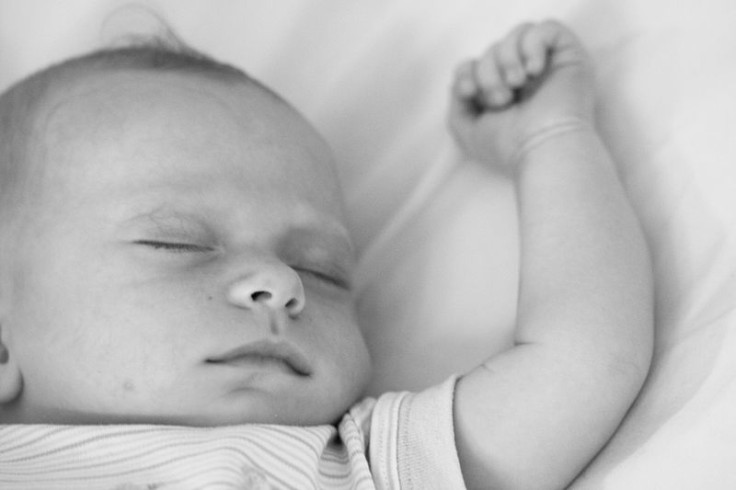Your Baby's Crying In Sleep Could Lead You To Lose 44 Days Of Slumber In A Single Year

Cradling, diaper changes, and a baby crying at 2 a.m. are all too common for new parents during the first year of their child’s life. Getting a good night’s sleep before a baby reaches the tender age of 3 months seems far-fetched because life with a newborn is a round-the-clock adventure. While every baby is different, many babies can sleep five hours straight by the time they reach 3 months of age, while by 6 months of age, they can sleep nine to 12 hours straight, according to the Mayo Clinic. A baby crying in sleep could cause new parents to lose 44 days of slumber in the first year of an infant’s life, according to a new survey.
The survey, conducted by Ergoflex, a memory foam mattress company, observed the sleeping habits of over 1,800 people from across the UK. In addition, married survey respondents were asked to estimate how many times on average they were awoken by their partner’s snoring or bedtime habits in a week. Ergoflex revealed that new parents and married respondents lost a significant amount of sleep within a year.
The Camden and Islington NHS Foundation Trust recommends that adults get around seven to eight hours of sleep each night. Ergoflex's research revealed that a new parent reportedly lost 2.9 hours of sleep below the recommended eight hours every night. The results indicate that parents lose a total of 20.3 hours of sleep per week, equating to 1,055.6 hours or 44 days in the first year of a newborn’s life.
Night feeds were ranked as the top reason for sleepless nights at 62 percent, followed by baby crying/waking at 57 percent, insomnia/trouble sleeping at 34 percent, and doing chores while baby is sleeping at 27 percent, the Daily Mail reports.
Married respondents were found to be awoken by their partners more than twice a week, totaling 109 wake-ups per year. Waking up one or more times during the night heavily impacts the quality of sleep that a person gets. Individuals awoken by their partner’s bedtime habits miss out on the deep stage-four sleep that is essential to revitalize the mind and body, says Dr. Laura Berman, a love and sex expert who was not involved in the survey. “Sleeplessness takes its toll on your health, happiness, and relationship satisfaction,” she says.
Sleep deprivation for new parents can cause physical issues and make them feel miserable and even cranky. A lack of sleep on a regular basis is associated with long-term health consequences, such as diabetes, high blood pressure, and heart disease, according to the Division of Sleep Medicine at Harvard Medical School. Those who habitually sleep more than nine hours are also at risk for poor health outcomes, such as dangerous fat depositions around vital organs.
To learn how to cope with being a new parent during your baby’s first year of life, visit Babycenter.com.



























